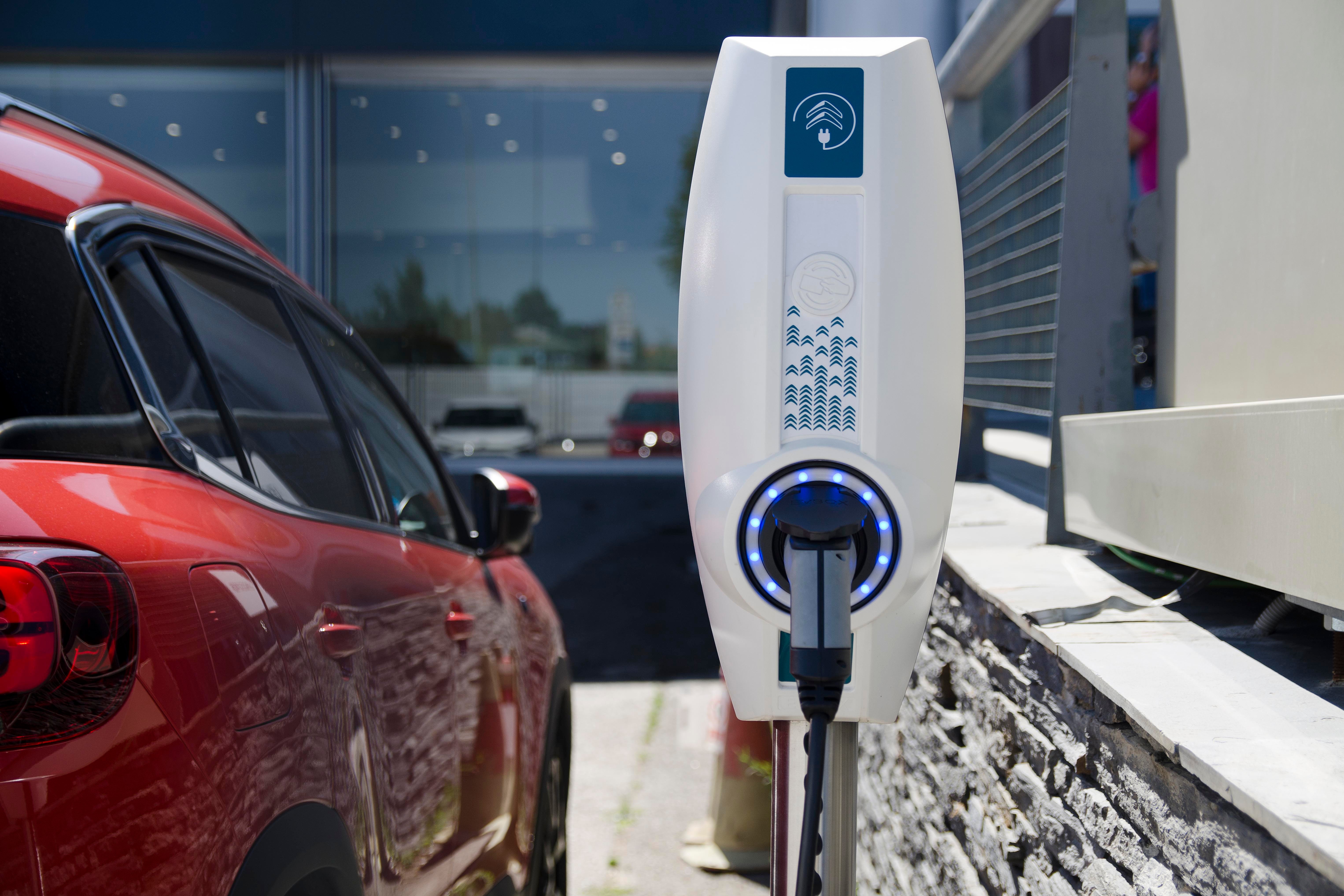
5 reasons why EV chargers boost employee satisfaction
The automotive industry is on the brink of a new era. Today, one in ten vehicles sold in Europe is electric. By 2030, it’s estimated that there will be up to 240 million electric vehicles (EVs) on the roads worldwide.
While there’s no doubt EVs are gaining momentum, nearly four out of five EV drivers in the US say there are not enough charging options at work. With the majority of EV drivers and potential EV drivers employed full-time, chances are many of your employees already drive electric or will be looking to make the switch soon.
By stepping up to support EV drivers, your business has the potential to reap many benefits. Not only can EV charging provide your brand with a competitive edge, but it can also benefit your employees and customers, and lay the groundwork for a greener future.
So, how exactly does workplace charging impact employee happiness? From offering a convenient amenity to boosting productivity, the benefits might surprise you. Read on to learn five key reasons why adding EV chargers to your workplace will delight your employees for years to come.
1. EV charging at work is convenient
When it comes to workplace charging, offering convenience for your employees is one of the most obvious benefits. Instead of just relying on home charging to charge their vehicle, EV drivers prefer to charge wherever they are. Known as the top-up model, this approach means charging can happen anywhere; at home, work, around the city, or out of town.
The main reason EV drivers prefer this model is it eliminates the (somewhat overblown) fear of range anxiety. While running out of power in the middle of nowhere is unlikely given eight in ten European drivers travel less than 100 km a day, providing employees with a place to charge at work gives them peace of mind. Plus, as 36 percent of EV drivers think EV charging is too time-consuming, why not make them even happier by letting them charge during office hours? With a fully charged EV by the day’s end, your employees can get on with their life outside of work with ease.
What’s more, not all EV drivers have access to home charging, making workplace charging even more essential. Providing EV charging for your employees demonstrates your business is a responsive and committed employer. This brings us to our next point:

2. EV charging at work boosts productivity
It’s the little things that matter when it comes to boosting employee productivity—and pleasing employees with EV charging has the potential to do just that.
Thanks to offering the convenience of charging at work, you save your employees time and worry. With less time wasted searching for a place to charge, your employees are more likely to be on time (think of all those valuable hours of productive time added back to an employee’s day). They may even work a little longer to wait for their EV to fully charge.
Moreover, providing your employees an amenity they truly need can make them feel valued. Employees who feel valued by the business are more engaged and productive. With a deeper level of trust and security at work, your workforce will have more energy to create value—a win-win for your employees and your business.
3. EV charging helps to attract and retain top talent
Alongside keeping your existing workforce happy and productive, adding EV charging can also play a part in attracting new talent. More and more, employees expect their workplace to be socially and environmentally conscious. In fact, as found in LinkedIn’s 2018 Workplace Culture report, 86 percent of millennials would consider taking a pay cut to work for a company whose values align with their own.
It makes sense then to see that improving a facility’s image is one of the top five issues on the agenda for facility managers. With energy-efficient buildings earning major “PR points” in the public eye, certifications like LEED and BREEAM are highly sought after—and guess what earns certification points? EV chargers of course.
Installing EV charging stations at your workplace is an effective way to showcase support for innovation and improving the environment. Approximately two in three (potential) EV drivers think electric cars are part of the solution to fight climate change. This means you can attract talent who share a passion for the issues you’re trying to solve. Moreover, you can enable employees to play a key role in accelerating the global EV movement.

4. EV charging helps employees reduce their carbon footprint
Transport represents almost a quarter of Europe’s greenhouse gas emissions and is the main cause of air pollution in cities. About six in ten among the general public say reducing CO2 emissions in transportation is important to them. Experts broadly agree that EVs create a lower carbon footprint over the course of their lifetime than their gas-guzzling counterparts. With technology advancing, and EV production improving, these CO2 emissions are set to reduce even further.
By offering workplace charging infrastructure, you can significantly lower your carbon footprint from employee and customer travel. For companies with a lot of employees, emissions from employee commutes add up quickly. Encouraging employees to transition to EVs can make a serious impact when it comes to reducing emissions.
What’s more, if EVs are powered by your building’s solar installation, they’ll emit 90 percent less harmful emissions in their lifetime than conventional cars—all things your purpose-driven employees will be happy about.

5. EV-driving employees can claim a range of tax incentives
Government’s around the world are committed to increasing the number of EVs on the road to meet ambitious climate change targets. To reflect this priority, the way vehicles are taxed offers a range of incentives for companies and EV-driving employees alike.
21 out of 27 EU member states apply CO2-based taxation to passenger cars. There are many variations. In the UK for example, the government introduced tax cuts for employees using corporate EVs for personal use.
In Germany, on the other hand, private and company car owners of plug-in electric vehicles that charge their cars in their employer premises are exempt from declaring this as a cash benefit in their income tax return. What’s more, EV owners that charge their vehicles at home can even benefit from a tax reduction.



















